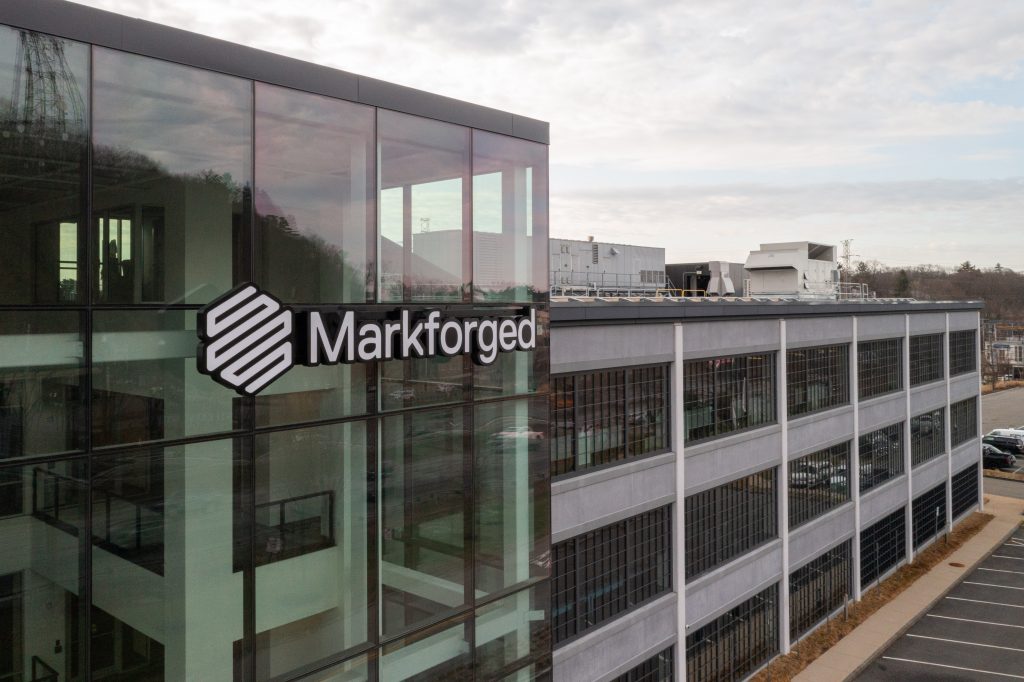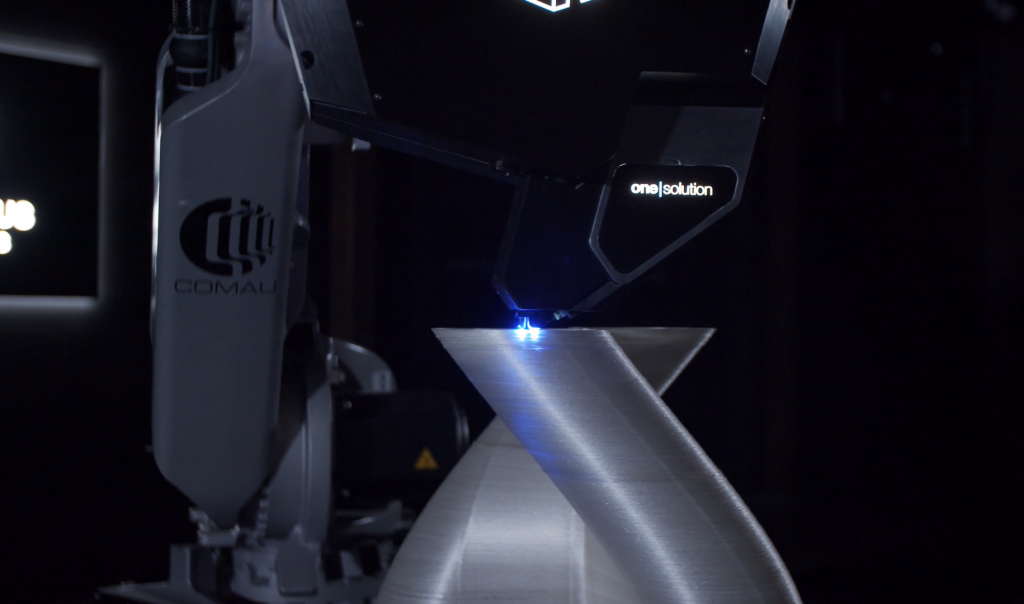3D printer manufacturer Markforged has been ordered to pay Continuous Composites $17.34 million as part of a patent-infringement lawsuit which began in 2021.
A federal jury in the US District Court for the District of Delaware found that several of the firm’s 3D printers infringe a patent which covers the method and apparatus for continuous composite 3D printing.
The judgment comes after the court eliminated four of the 3D printing patents originally asserted by Continuous Composites, comprising twenty patent claims in total. This left a single patent, including two claims, which was added to the case in February 2022.
The jury’s verdict, which was made on 11 April, concluded that one of these claims was invalid and had not been infringed. However, Markforged was found to have infringed the second claim, and must now pay monetary damages.
The company acknowledged that Continuous Composites may seek additional relief through royalty payments of future revenue, which it says could materially impact its future business and operations.
In a statement, Markforged asserted that it “strongly disagrees with this verdict and intends to seek to overturn the verdict in post-trial motions with the District Court.” It is “exploring all available options” to achieve this through the appeals process.
Following the verdict, Markforged’s share price fell from $0.74 on April 11, to a low of $0.65 on April 12.

Continuous Composites’ patent infringement lawsuit
Continuous Composites first filed the lawsuit against Markforged in July 2021, asserting that its ‘9,511,543,’ ‘9,987,798,’ ‘10,744,708,’ and ‘10,759,109’ US patents had been infringed. At the time, the company highlighted that these patents form part of a larger family of nine patents and two pending applications which pre-dates the existence of Markforged.
After launching its claim, Continuous Composites alleged that its technology was being used for products that account for “the majority of Markforged’s revenue.” These allegations were strongly opposed by Markforged, which defended its position during a “Claim Construction” hearing last year. Here, the court agreed with Markforged’s interpretation of the phrasing in the four patents, which were subsequently removed from the case.
Now, the Delaware jury has concluded that Markeforged’s Onyx Pro, Mark Two, X5, X7, X7 Field Edition, and FX20 3D printers infringe Continuous Composites’ US Patent ‘11,173,660.’
Titled “Method and apparatus for continuous composite three-dimensional printing,” this patent outlines the process for simultaneously extruding two or more materials as a composite. At least one of these materials must be in liquid form. The liquid is cured after extrusion to encase a continuous strand of solid material. This process is central to Continuous Composites Continuous Fiber 3D printing (CF3D) technology.
Markforged is assessing the impact of the verdict, but remains confident in its ability to “drive the adoption of additive manufacturing on the factory floor.”
Last month, the company released its financial results for FY and Q4 2023. For the year as a whole, Markforged’s revenue decreased 7.1% YoY to $93.8M, while operating loss increased 27.9% YoY to -$111.4M. Looking to FY 2024, the firm hopes to achieve profitability and generate revenue between $95M to $105M.

3D printing patent infringements
Markforged and Continuous Fibers are not the only 3D printing companies to face patenting contentions.
Last year, it was announced that Torbjørn Ludvigsen’s legal challenge against the US Department of Energy’s (DoE) Oak Ridge National Laboratory’s (ORNL) ‘SkyBAAM’ 3D printing patent had succeeded.
Back in 2014, Ludvigsen first publicized the HangPrinter, an open-source FFF delta-style 3D printer that operates without a frame. In January 2022, ORNL’s patent application for Sky Big Area Additive Manufacturing or ‘SkyBAAM’ technology was approved. This drew criticism from open-source advocates such as Dr. Joshua Pearce and RepRap Founder Dr. Adrian Bowyer who highlighted SkyBAAM’s similarity to the HangPrinter.
Ludvigsen submitted an ex parte reexamination request to the US Patent and Trademark Office (USPTO), requesting that ORNL’s patent be reexamined. Ultimately, the USPTO agreed with his challenge. ORNL’s original claims were rejected, with none of the revised claims covering that of existing HangPrinters.
Elsewhere, Bioconvergence specialist BICO signed a licensing agreement with 3D bioprinting firm Organovo to end a long-running legal dispute.
CELLINK, a subsidiary of BICO, had previously faced accusations from Organovo that it had contravened the firm’s IP after selling technology relating to the ‘3D printing of tissues and drug development.’ CELLINK filed similar suits claiming that five of Organovo’s patents infringe upon its own, as well as those of its subsidiaries.
While maintaining its innocence, BICO subsequently agreed to license Organovo’s technology, resulting in the legal proceedings being dropped. Through the commercial licensing agreement, BICO had to pay around 1-2% of its total revenue for 2022 in exchange for access to Organovo’s 3D bioprinting portfolio.
What does the future of 3D printing hold?
What near-term 3D printing trends have been highlighted by industry experts?
Subscribe to the 3D Printing Industry newsletter to keep up to date with the latest 3D printing news.
You can also follow us on Twitter, like our Facebook page, and subscribe to the 3D Printing Industry Youtube channel to access more exclusive content.
Featured image shows Markforged HQ. Photo via Businesswire.


